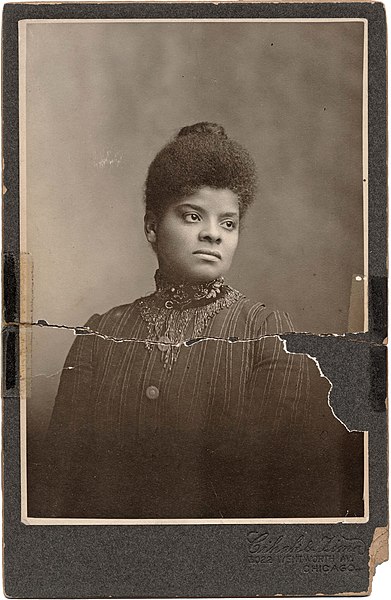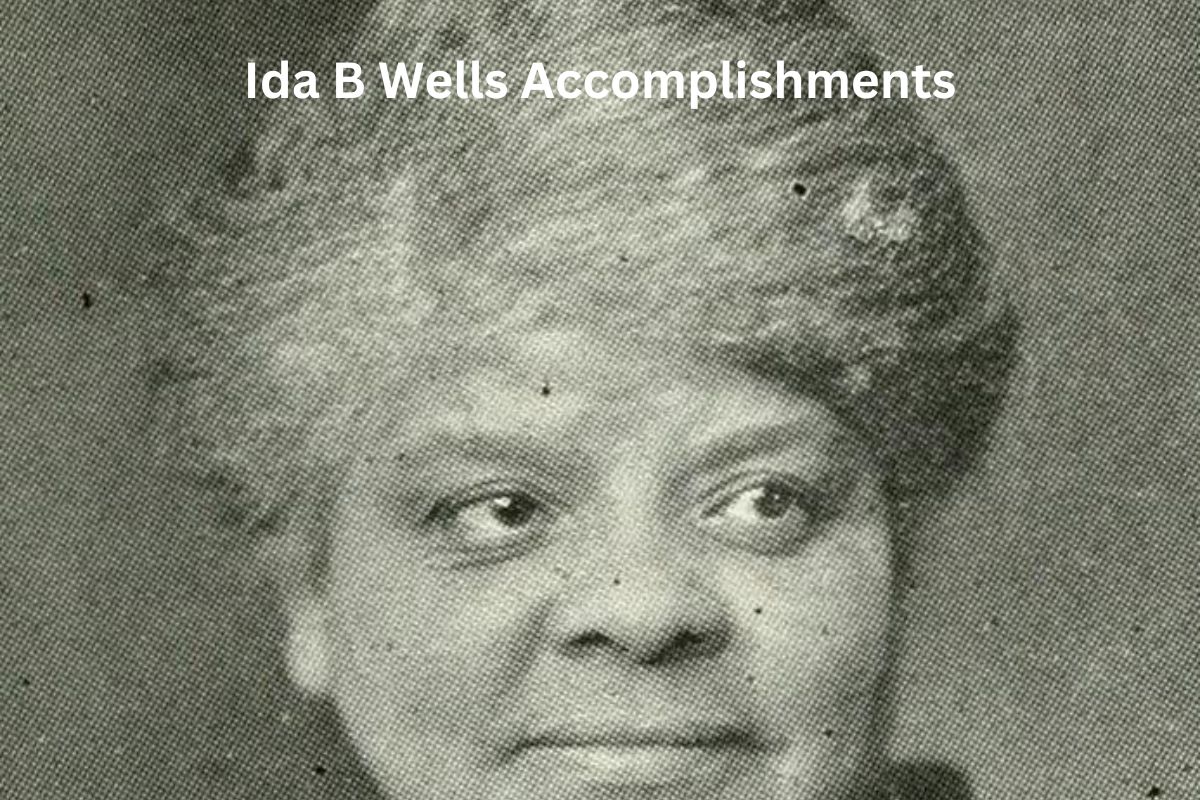Ida B. Wells was a pioneering African American journalist, suffragist, and civil rights activist who lived from 1862 to 1931. She dedicated her life to fighting against racial injustice and gender inequality in the late 19th and early 20th centuries.
Wells made significant contributions through her anti-lynching activism, investigative journalism, and advocacy for women’s suffrage.
As a co-founder of the NAACP and an influential writer and public speaker, she played a crucial role in raising awareness about racial violence and discrimination, while challenging the oppressive systems of her time.
Ida B. Wells’s accomplishments continue to inspire and shape the ongoing struggle for equality and justice.
Accomplishments of Ida B Wells
1. Anti-lynching Activism
Ida B. Wells became a prominent anti-lynching advocate in the late 19th century. After three of her friends were lynched in 1892, she dedicated herself to exposing and condemning this brutal form of racial violence.
Also Read: Ida B Wells Facts
She investigated numerous cases of lynching, gathering evidence and documenting the injustices. Wells believed that by bringing awareness to the horrors of lynching, she could rally support for its eradication.

2. Founding the Anti-Lynching Campaign
In response to the lynching of her friends, Wells launched an influential campaign against lynching.
She used her platform as the owner and editor of The Memphis Free Speech and Headlight newspaper to publish a scathing editorial denouncing the lynching of Thomas Moss, Calvin McDowell, and Will Stewart.
Also Read: Ida B Wells Timeline
Her editorial encouraged African Americans to leave Memphis and boycott businesses that condoned or supported the lynching. This courageous act marked the beginning of her dedicated efforts to expose and combat lynching in America.
3. Investigative Journalism
As a skilled journalist, Ida B. Wells used her writing and investigative abilities to shed light on racial violence and discrimination.
She extensively researched and documented cases of lynching, carefully compiling statistics, testimonies, and historical data to expose the prevalence and severity of lynching incidents.
Her work, published in various newspapers and pamphlets, aimed to counteract the prevailing narrative that justified or ignored these acts of violence.
Through her meticulous journalism, Wells challenged the notion of white supremacy and sought to bring about social change by raising public awareness of the injustices faced by African Americans.
4. Founding The Alpha Suffrage Club
In 1913, Ida B. Wells founded The Alpha Suffrage Club, one of the first African American women’s suffrage organizations in Illinois.
The club aimed to advocate for women’s voting rights and played a crucial role in mobilizing African American women to actively participate in the suffrage movement.
The Alpha Suffrage Club provided a platform for African American women to organize, strategize, and voice their demands for equal suffrage, challenging the racial and gender barriers that existed within the suffrage movement.
5. Women’s Suffrage Activism
Ida B. Wells was a dedicated advocate for women’s suffrage, actively working alongside prominent suffragists such as Susan B. Anthony and Elizabeth Cady Stanton.
Wells believed that women’s rights and racial equality were interconnected struggles. She fought for the inclusion of African American women within the suffrage movement and actively worked to ensure that all women could exercise their right to vote.
Her efforts in the suffrage movement helped to highlight the importance of intersectional feminism and the need for equal voting rights for all women.
6. Establishing the Negro Fellowship League
In 1910, Ida B. Wells founded the Negro Fellowship League in Chicago. The organization aimed to provide support and resources for African American migrants who moved to the city during the Great Migration, a period of mass movement of African Americans from the rural South to the urban North.
The Negro Fellowship League offered housing, employment assistance, educational opportunities, and social services to help African American migrants transition and thrive in their new communities.
Wells recognized the challenges faced by African Americans in the North and sought to provide them with a support system to navigate the complexities of urban life and combat racial discrimination.
7. Co-founding the NAACP
In 1909, Ida B. Wells was one of the founding members of the National Association for the Advancement of Colored People (NAACP). The NAACP is one of the oldest and most influential civil rights organizations in the United States.
Wells contributed her expertise and activism to the organization, which aimed to fight for racial equality and combat systemic racism. Through her involvement, Wells played a pivotal role in shaping the organization’s agenda and strategies to address racial injustices.
8. Writing and Publishing
Ida B. Wells was a prolific writer and author. She used her writing skills to document and expose racial violence, discrimination, and injustices.
Wells authored several books, including “Southern Horrors: Lynch Law in All Its Phases” (1892) and “The Red Record: Tabulated Statistics and Alleged Causes of Lynching in the United States” (1895).
Her writings were influential in bringing attention to the plight of African Americans and challenging the prevailing narratives that perpetuated racism. Through her powerful words, Wells inspired others to join the fight against injustice.
9. Public Speaking and Lectures
Ida B. Wells was an eloquent and compelling public speaker. She traveled extensively, delivering speeches and lectures across the United States and internationally.
She used her platform to raise awareness about racial inequality, lynching, and women’s rights. Her speeches were known for their persuasive power and ability to mobilize audiences to take action.
Wells’s public speaking engagements were instrumental in galvanizing support for civil rights causes and challenging the status quo.
10. Fighting Segregation
Ida B. Wells actively fought against segregation and worked to create equal opportunities for African Americans. She challenged segregation laws and practices in various aspects of society, including public transportation.
Wells organized boycotts and protests against discriminatory practices, advocating for the right of African Americans to access public spaces and services without segregation or discrimination.
Her efforts were part of a broader movement that aimed to dismantle the Jim Crow laws and establish equal rights for all citizens.
These accomplishments highlight Ida B. Wells’s dedication to fighting for racial equality, gender equity, and social justice. Her contributions continue to inspire and shape the civil rights movement and serve as a testament to the power of activism and advocacy.
